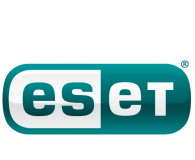Fortanix® Inc., the leader in Runtime Encryption, announced it is uniquely addressing critical enterprise blockchain security requirements by enhancing its Self-Defending Key Management Service™ (SDKMS) next-generation Hardware Security Module (HSM) solution with advanced cryptographic algorithms and new data protection features and to help organizations secure encryption keys for blockchain and financial information.
Enterprise blockchain has the potential for transformative benefits. By adopting a blockchain style ledger system, organizations can significantly increase efficiency and enhance collaboration internally and across business ecosystems. However, blockchain has the potential to carry significant economic value. Private keys, regarded as the identity and security credential, are associated with financial value, which is attractive to attackers.
Fortanix SDKMS eliminates one of the largest obstacles to blockchain adoption – secure and compliant encryption key management – by delivering unmatched security for the generation and use of keys. Complete key management and key usage policies are enforced inside Intel® Software Guard Extensions enclaves, ensuring confidentiality and integrity of the policies and private key protection even when in use. SDKMS delivers HSM-grade security designed for easy integration into blockchain environments with complete flexibility of deployment model, application integration with RESTful API support, support for enhanced cryptographic algorithms, and policies for key signing and access control.
New SDKMS capabilities helping address blockchain security concerns include a quorum approval (M of N) policy, or multi-signatures (multisig) support, for enhanced protection of highly sensitive key operations. Organizations can define flexible quorum approval policies, such as approval required by three out of five users, with approval required by specific users or multi-level approvals. Easy-to-use intuitive workflows enable secure remote collaboration.
Fortanix SDKMS supports comprehensive NSA Suite B algorithms. Additionally, with its software-defined approach to HSM and key management, Fortanix continuously delivers support for new algorithms, such as support for ECDSA secp256k1 used by Bitcoin applications.
“Enterprise blockchain can be useful for business transactions and has the potential to carry significant economic value, which inevitably increases the risk of theft and misuse,” said Ambuj Kumar, Fortanix co-founder and CEO. “Organizations are turning to Fortanix for their blockchain security needs, in order to have complete control over who is allowed on the network, while uniquely securing their blockchain transactions with the industry’s first runtime encryption operating in a secure enclave.”
Organizations can deploy Fortanix SDKMS appliance nodes centrally or in a distributed manner. In each case, the Fortanix SDKMS cluster delivers centralized key management capabilities to any blockchain application or any device. For organizations that prefer a SaaS consumption model, Fortanix-powered Equinix SmartKey™ delivers HSM and key management as a global cloud service. Regardless of the deployment model, organizations have centralized visibility and control over the entire solution. Multiple clusters can also be deployed to separate hot and cold wallets – hot wallets being used for frequent usage, while cold wallets keep the majority of tokens in secure tamper-proof storage.
In addition, the Fortanix Runtime Encryption plug-in capability allows organizations to customize cryptographic logic and run it securely inside the trusted execution environment of Intel® SGX. This allows unique policies for key usage, such as applying thresholds, as well as access control to be enforced per an organization’s requirements. Plug-ins can also support secure key derivation for HD wallets, such as defined by BIP 32. SDKMS runs on hardened FIPS 140-2 Level 3 compliant appliances that deliver enhanced physical security.
For more information see: https://fortanix.com/solutions/use-case/blockchain/















